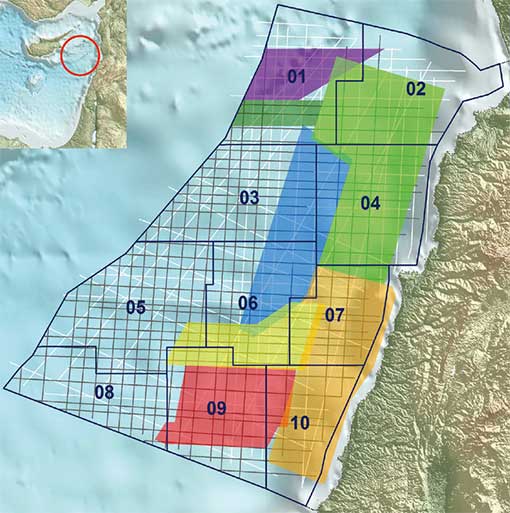
Israel described as “very provocative” on Wednesday a Lebanese offshore oil and gas exploration tender in disputed territory on the countries’ maritime border, and said it was a mistake for international firms to participate.
Lebanese Prime Minister Saad al-Hariri, whose country considers Israel an enemy state, said the comments were one of several “threatening messages” from Israel in recent days.
Lebanese political and military movement Hezbollah vowed to defend the country’s “oil and gas rights” against Israeli threats.
Lebanon is on the Levant Basin in the eastern Mediterranean where a number of big sub-sea gas fields have been discovered since 2009, including the Leviathan and Tamar fields located in Israeli waters near the disputed marine border with Lebanon.
Israeli Defence Minister Avigdor Lieberman said: “When they issue a tender on a gas field, including Block 9, which by any standard is ours … this is very, very challenging and provocative conduct here.”
“Respectable firms” bidding on the tender “are, to my mind, making a grave error – because this is contrary to all of the rules and all protocol in cases like this,” he told an international security conference hosted by Tel Aviv University’s INSS think-tank.
Lebanon in December approved a bid by a consortium of France’s Total, Italy’s Eni and Russia’s Novatek for two of the five blocks put up for tender in the country’s much-delayed first oil and gas offshore licensing round.
One of the awarded blocks, Block 9, borders Israeli waters. Lebanon has an unresolved maritime border dispute with Israel over a triangular area of sea of around 860 sq km (330 square miles) that extends along the edge of three of the blocks.
Israel has not issued its own tenders for Block 9, with its officials saying they were focused on blocks that would not be disputed.
“Lieberman’s words about Block 9 are a threat to Lebanon and its right to sovereignty over its territorial waters,” Lebanese President Michel Aoun said on his official Twitter account.
Hariri said the country would take up the comments with the “relevant international bodies to affirm its right to act in its territorial waters”. In a statement from his press office, the premier said Lieberman’s words were “blatant provocation”.
Lebanese Foreign Minister Gebran Bassil said he had sent a letter to the United Nations two weeks ago affirming Lebanon’s right to defend itself and its economic interests.
Hezbollah described the comments as “a new aggression” and said it would “decisively confront any assault on our oil and gas rights.”
Israel last went to war in Lebanon in 2006, against Iran-backed Shi‘ite Hezbollah. The month-long war in 2006 killed around 1,200 people in Lebanon, mostly civilians, and 160 Israelis, most of them troops.
With tensions rising anew, Lieberman, a far-rightist in Prime Minister Benjamin Netanyahu’s conservative coalition government, said Lebanon would “pay the full price” for any new Hezbollah attacks on Israel.
He said that the Lebanese army was indistinguishable from Hezbollah and both were fair game in any future war.
But he said Israel sought no war, adding: “We try to conduct ourselves determinedly and responsibly.”
The offshore exploration and production contracts are expected to be officially signed on Feb. 9, Energy Minister Cesar Abi Khalil said, allowing exploration to begin.
REUTERS

Leave a Reply
You must be logged in to post a comment.